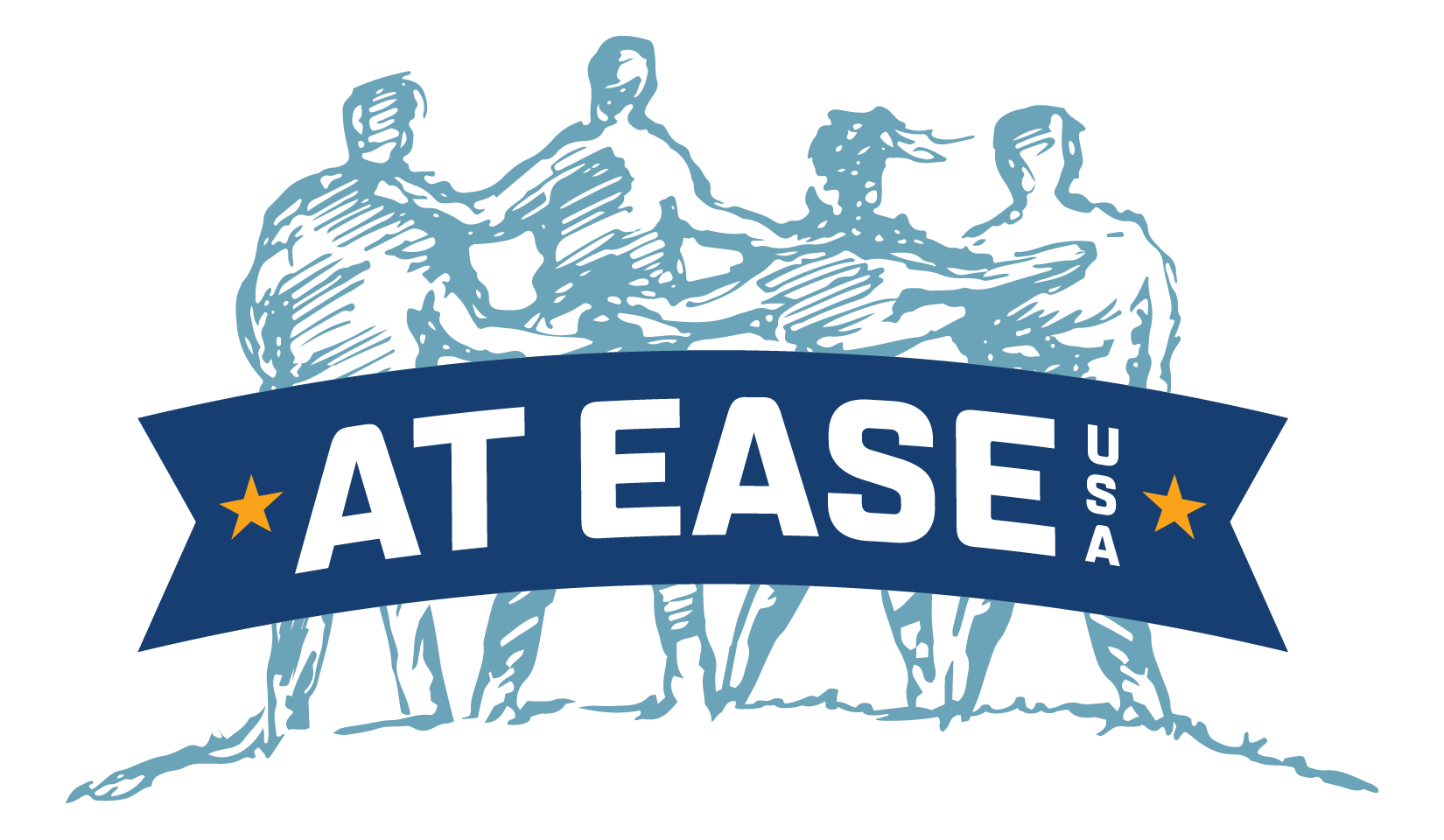PTSD
Resources
Frequently Asked:
No. Well-founded or not, there is a documented belief among service members that seeking behavioral health therapy or treatment could adversely affect their military careers or reputation. As a result, the General Accounting Office estimates that only 40 percent of veterans entitled to PTSD services through the VA ever pursue treatment.
The At Ease program, disconnected from the official “military,” is positioned to overcome the strong stigma which exists among military service members against receiving treatment from official sources – both because getting help is considered “unmilitary,” even cowardly, and because mental health disorders themselves can be very difficult to face. This stigma is a primary obstacle to accessing treatment, and with the program’s commitment to confidentiality and its independent status, At Ease circumvents it. At Ease can also help facilitate connections with those who seek VA services.
At Ease serves loved ones, as well as service members. At Ease recognizes that the country’s current state of military affairs, with multiple long-term deployments, stop-loss orders and the subsequent fears and hardships they create, are taxing on loved ones. At Ease provides confidential treatment to a broad scope of these loved ones, while the traditional resources offer only limited programming to individuals who do not fall within the immediate family unit. At Ease recognizes the need for suitable treatment options for our military members’ entire network of support, and serves any individual impacted by having a loved one in the military.
At Ease serves military members regardless of their service status. This includes individuals who have been dishonorably discharged. While these veterans may have made choices that ended their military careers, many of them are facing the same trauma issues as other veterans. At Ease provides confidential treatment to these veterans, many of whom may have been discharged, instead of treated, due to actions symptomatic of PTSD.
Organizations
Brain Injury Alliance of Nebraska
Brain Injury Advocacy & Support
PO Box 22147
Lincoln, NE 68542
- 402.423.2463
- Website
Women’s Center for Advancement
Domestic Violence & Sexual Assault Support
3801 Harney Street
Omaha, NE 68131
- 402.345.6555
- Website
Community Action Partnership
Various Programs for Nebraskans with Low Income
210 O Street, Suite 100
Lincoln, NE 68508
- 402.471.3714
- Website
National Center for PTSD
Education & Resources
Kane’s Financial Services
Steve Kane
What is PTSD?
What exactly is Post-Traumatic Stress Disorder? Here's a brief definition, along with the signs and symptoms.
Support our work
How you can help.
As an independent, non-governmental non-profit, the services we provide are directly tied to the contributions we get from individuals like you. We’re lean, we’re effective and we’re reaching more and more servicemen and women each and every year. Your contributions are greatly appreciated.
Donations may be made in honor or in memory of a military or medical hero.
